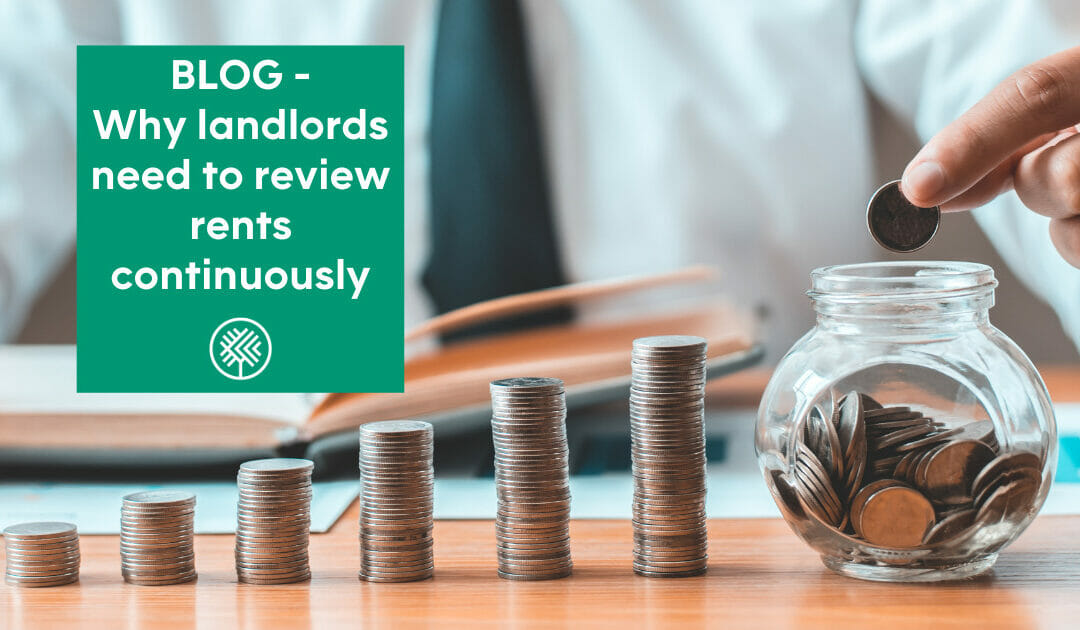Alongside mortgage rates, food costs and energy bills, rents are on the march UK-wide. According to a report from one major property portal, typical UK rents in April were a full 10% higher than the year before, standing at £1,126 on average, with London remaining the region where rents were growing most rapidly.
Meanwhile, Reuters reported this spring that private-sector landlords across England had upped rents on more than half of properties in the year to February, up from just over a third a year earlier, based on data analysed by the Office for National Statistics (ONS).
This clearly means many renters are feeling a tight squeeze on their finances. So you may be reluctant to raise what you charge your renters, given the cost-of-living crisis, especially for established tenants with whom you feel a personal rapport. But even if you’ve managed to have the same tenants in your rental property for more than a couple of years, you still need to check regularly that the amount of rent you are charging is accurate for the flat or house and its local area.
Additionally, your tenancy agreement should include a clause with details of rent changes and when and how you plan to carry out reviews, alongside the relevant notice period. This gives complete clarity for all concerned.
Here, we look at why you need to do this in a little more detail – and explain how to raise rents both fairly and professionally.
Why do I need to review rents annually?
As a guide, it’s a good idea to look at rents annually. Here’s why:
- To stay in line with market values
There have been dramatic shifts in the rental market in recent years, with pressure on available homes pushing prices up. Leaving rents unchanged means you are effectively not drawing part of your income. If you manage things yourself as a landlord, you may simply not realise how much your place is worth, and therefore be missing out, potentially to the tune of hundreds of pounds a month. And without keeping rent in line with market values, you may find that when you do come to increase it, you might have to settle for a slower increase than would actually be justified, otherwise the tenants may not to be able to afford a sharp jump in price.
So without realistic rent reviews, you could struggle to make a profit from your rental income. That’s especially true when you consider recent Energy Performance Certificate (EPC) changes and the fact that landlords can no longer deduct mortgage interest payments as an allowable expense for tax purposes, not to mention potential changes in the capital gains tax. Match rent rises in line with current market values and what similar properties in the area are earning.
- Selling with tenants in place
If you ever come to sell with renters in situ, it’s obviously more realistic to have correct rents already being charged.
Tips for reviewing rents professionally
If a managing agent looks after your tenancy and rental property, they will ensure that, as the market changes, tenancies are kept up to date so that you receive the right rent. If you self-manage your rental portfolio, you will need to do this yourself.
- Serve a notice
Without an agent to do this for you, you’ll need to serve a Section 13 notice in writing to those living in your property. This formally tells them about the rise in rent and outlines the right notice period.
- Be fair and reasonable
This is key to implementing rent hikes. After all, tenants are used to budgeting for a monthly set sum. As mentioned, a sudden, significant rise may be unmanageable, not least when everything else is so expensive.
You may have to assess ethical considerations plus the fact that a smaller increase is better than none, while remembering the impact of the loss of good tenants and then having to remarket the place. It can be a delicate balancing act.
- Follow the rules
It’s probably no surprise to learn that a landlord can’t just up rental payments whenever they feel like it. It depends on the type of tenancy involved. With a periodic tenancy (i.e. one that operates on a rolling week-to-week or month-to-month basis), an annual review is standard.
For fixed-term tenancies, or those that run for a fixed period, for example six or 12 months, the tenant must agree to any increases during the tenancy. Otherwise, rent can only go up once the tenancy ends.
- Other ways to increase rent
You can inform tenants and do this when renewing a fixed-term tenancy. Or you could just come to an arrangement with your renters, in which case you’ll need a written record which both parties have signed.
Oakfield says
A good agent will know the local area well and so will ensure you charge an accurate rent reflecting the area, property and current market value.
Not only that, but we carry out fair, realistic annual rent reviews, so that you don’t have to. This minimises any potential awkwardness in your relationship with those living in your property.
Get in touch today to learn more about how we could lighten the load of being a landlord, and make sure that you get maximum return for your investment in running a rental property. Click here for our contact details.

